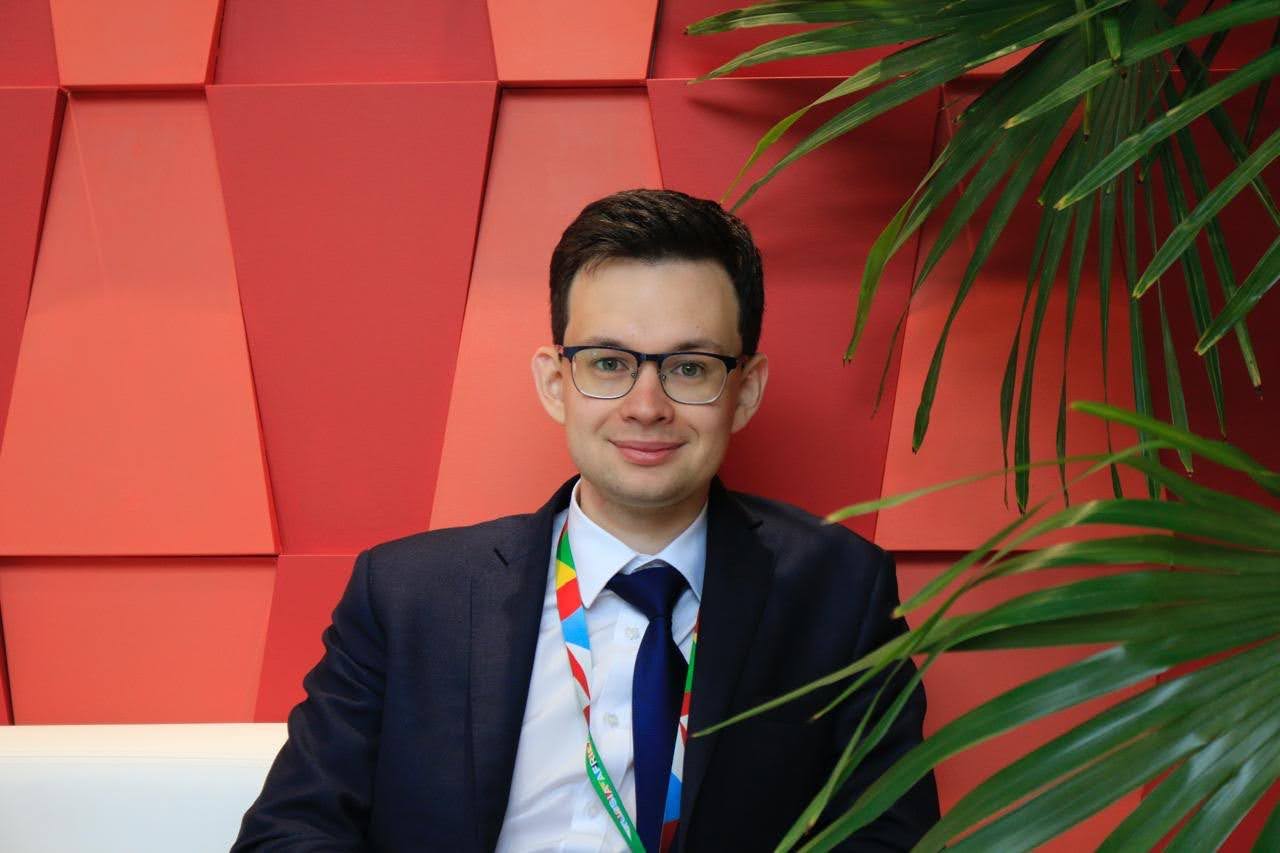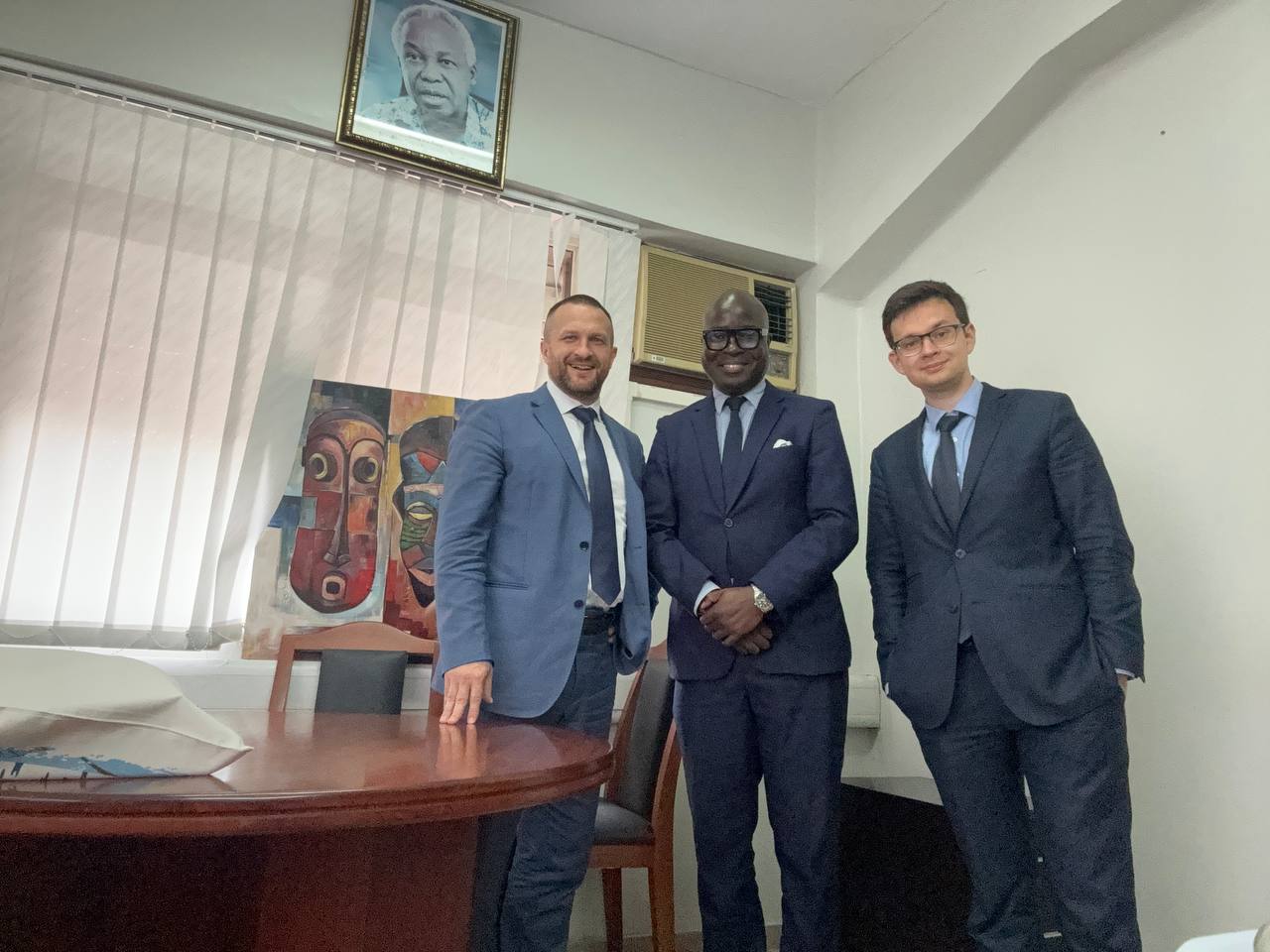"Studying Africa Is Increasingly Important for Understanding the New World…"
Lecturers of African Area Studies discussed the region's significance and their personal experience with African politics and culture.
Africa's role on the international stage has significantly increased in recent years. Initially, the continent served as an arena for geopolitical struggles among European colonial powers, but today Africa is becoming less dependent on external forces. Moreover, various aspects of the global economy and politics, from international trade to military conflicts, are increasingly influenced by Africa's stance.
Experts from the Centre for African Studies at the Higher School of Economics, Vsevolod Y. Sviridov and Andrey A. Maslov, shared their thoughts on the region’s role, the prospects of its study, and their personal experience with African politics and culture. In the new academic year, they will teach the course "Area Studies: Africa" in the IRGS programme.
On the emergence of scientific interest
V. Sviridov:
I studied at the St. Petersburg State University (SPbU), and during my first year, the head of the African Studies department asked everyone, "Why would you like to study Africa?" Usually, students would come up with various stories like playing African drums since childhood or dreams about Victoria Falls and the Congo forests. My story is a bit more prosaic: I’ve always been interested in languages, culture, and history, and it seemed to me that among all the possible options, African Studies was the most interesting subject for research. For example, during my undergraduate studies, I worked on a topic that no one in the world had studied before me. In other regions, it’s hard to find such unexplored topics. But in Africa, there are plenty: one can study linguistic and ethnic groups, their traditions, and culture.
And, of course, my interest in Africa was greatly influenced by the head of the department, Professor Alexander Zheltov. He captured my focus and attention during an open day event, and I have no regrets about my choice.

A. Maslov:
I studied in a maths class, and in the 9th and 10th grades, I realised that mathematics was too abstract, and I was more interested in studying people. Africa is an unexplored territory in terms of human relations and structures. Most theories of social and political anthropology work with African material because it provides a unique diversity of forms that can be studied directly rather than through written sources. Real indigenous peoples are mostly found in books, but in Africa, there still exists a diversity of social and political organisations unfamiliar to us. Non-hierarchical, network-centric structures are present in Africa in various forms. I was fascinated by the combination of adventurous excitement and the opportunity to work with unknown social systems. It was an opportunity to engage in science while experiencing incredible adventures.

On working in Africa
Contrary to the widespread stereotype of Africa's economic lag, investment inflows into the region continue to grow, and the prospects offered to young specialists are not as bleak as portrayed in films about starving children and constant coups.
A.Maslov:
I've always been interested in applied African studies. In the mid-2000s, there was a surge of interest in Africa within Russian business. At that time, many mining companies and banks almost simultaneously decided to launch large-scale projects in Africa. That surge, in a sense, structurally preceded the recent one, which began around 2017.
Back then, I ran a small consulting company, Rosafroexpertise. With a small team, we consulted almost everyone on the market. There was a lack of applied expertise, and we worked with half of the top 20 Russian companies. The question of us being acquired by a big business was more a matter of time; we couldn’t independently build a powerful consulting project at that time. So, an offer from the industry to head something in Africa seemed like a logical step forward. I moved to VTB, then to Gazprom. After satisfying my material needs and letting my children grow up, I began to approach my work with even more enthusiasm, building on a completely different experience.
Unfortunately, the corporate sector in Africa revealed a very limited range of opportunities. I came to believe that the informational, analytical, and expert support for Russian business and initiatives in Africa cannot be addressed from within big business; it needs to be built externally. Inside, short-term, limited solutions prevail, and no major corporation has the depth and breadth of expertise on Africa that our Centre for African Studies has.
Working in Africa was very interesting and useful for me as both a specialist and a teacher. I participated in a large number of negotiations, in some significant deals, and I have extensive experience and an understanding of how business works in Africa; we interacted with Chinese, Americans, and Arabs. I know the range of approaches not from books but from personal experience, and I can answer any questions based on that experience. I think this is valuable, and such knowledge should become a part of the area studies course as it nicely complements theory.
When the second surge of interest in Africa began in Russia, I realised that we needed to gather our team again. Thanks to Sergey Karaganov and Andrey Zhurin, Polina Slyusarchuk, and HSE as a whole, I had enough time to make a smooth transition and return to the Centre for African Studies.
On prospects
V. Sviridov:
Africa offers an opportunity to look at the world with fresh eyes. Old models (e.g., Eurocentric) are quite worn out. When you’re in Africa, world events are perceived differently; even what happens in Russia is seen in a new light. I think the demand for something new, for a shift in perspective, is crucial when studying Africa.
There are three layers. The first is quite obvious: due to Western sanctions and restrictions, a free space has opened up, which in Russia is being filled by growing interest in Africa. The second layer is the increase in Africa’s weight in global affairs. Although the growth occurred in the 2010s and was driven by a demographic boom, investment inflows, and several other factors, this wave has only now reached Russia. Finally, the third layer is the “African” model of the world, i.e., the political and social structures, the apolarity of political systems on the continent, which is becoming increasingly global. Knowledge of Africa is increasingly important for understanding the new world as a whole.
A. Maslov:
We should not forget the objective importance of Africa for Russia’s foreign policy. First, we make money there. Also, Africa provides Russia with political support. The neutrality of the region’s countries in Russia’s conflict with the West has significant value, reflecting Africa’s political independence from former metropoles and indicating that Russia now owes much to Africa, as the “global majority” holds at least a statistically and ideologically neutral position thanks to Africa.
About the course
The instructors speak about their course with particular reverence: they face the challenging task of delivering a high-quality and innovative course for students in the International Relations and Global Studies programme, adapting their experience and knowledge to modern realities and the current needs of students.
V. Sviridov:
We’ve already outlined preliminary topics. When we discussed the academic load and hours, it seemed like there was a lot of time, but when we started developing the course programme, it became clear that the course is rather short, and it will be challenging to fit everything we’d like into it, but we’ll try.
It will be more of an introduction to African Studies, a general overview course focused on applied aspects. At SPbU, where Andrey and I studied, the emphasis was on history, linguistics, and anthropology, theory. In our course, we’ll try to view these topics from a more applied angle. Our task is to introduce 2nd and 3rd-year students to Africa, give them a systematic foundation, and prepare them for more complex courses (such as Business Strategies and Conducting Business in Africa). And, of course, we hope that outstanding students will begin collaborating with our centre and gain experience as African experts.
What is Africa to you?
A. Maslov:
Africa is happiness, smiles, joy, and warmth.
V. Sviridov:
Africa is the ultimate spa! When I visit Africa, I truly relax and unwind.
This material was prepared as part of the Press Centre for International Relations and Global Studies project. Interview: I. Pokatilov (2nd year). Editing and text: T. Petrov (2nd year, press centre coordinator).

